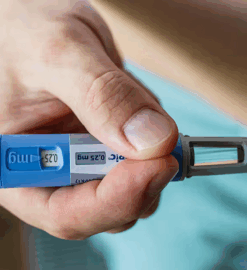What is a TMJ Disorder, and What Are the Possible Treatments?

Your jawbone and skull are joined together by the temporomandibular joint (TMJ), which functions as a gliding hinge. On either side of your jaw, there is a joint. Temporomandibular disorders, sometimes known as TMDs, include TMJ problems, which can hurt your jaw joint and its muscles. You can get the best TMJ treatment in Midlothian.
Treatments for a TMJ disorder:
The signs of TMJ issues might occasionally go away on their own. Your doctor may suggest several therapy alternatives, frequently more than one, to be carried out concurrently if your symptoms do not improve.
Medications:
Anti-inflammatory and painkilling medications: Your doctor or dentist may recommend stronger painkillers for a short period, such as ibuprofen with prescription strength if over-the-counter painkillers are ineffective in treating your TMJ symptoms.
Tricyclic mood stabilizers: In modest doses, certain drugs, like amitriptyline, are also occasionally used for pain management, controlling bruxism, and treating insomnia.
Muscles relaxants: These medications may be taken for a few weeks or days to help with pain relief from TMJ issues brought on by muscle spasms.
Non-pharmacological treatments for TMJ issues include:
- Mouth guards: Many times, wearing a hard or soft device implanted over their teeth will help persons with jaw pain, but the causes of why these gadgets are helpful are not fully understood.
- Physical treatment: Treatments could involve ultrasound, moist heat, ice, and workouts to stretch and strengthen jaw muscles.
- Consultation: You can learn about the things and actions that might worsen your pain and avoid them with education and counseling. Examples are chewing your fingernails, leaning on your chin, or clenching or grinding your teeth.
Surgical treatments:
- Arthrocentesis:
It entails implanting tiny needles into the joint to put the fluid through the joint to remove inflammatory byproducts and debris.
- Injections:
Injections of corticosteroids into the joint may be beneficial in certain individuals. Botulinum toxin type A injections into the chewing muscles might occasionally reduce discomfort brought on by TMJ issues.
- TMJ arthroscopy:
Occasionally, arthroscopic surgery can be just as successful as open joint surgery in treating different forms of TMJ issues. An arthroscope is inserted through a short, thin tube, and little surgical instruments are used to do the surgery. TMJ arthroscopy has various restrictions but fewer risks and problems than open joint surgery.
- Modified condylotomy:
Procedure on the mandible, rather than the joint itself, indirectly affects the TMJ. It might be helpful if you feel like locking or need pain relief.
- Open joint surgery:
Your dentist or doctor may advise open joint surgery to fix or replace the joint if your jaw pain is not going away after trying more conservative therapies and looks to be brought on by a structural issue in the joint. However, open-joint surgery should be carefully examined after weighing the advantages and disadvantages because it carries more risks than other operations.



